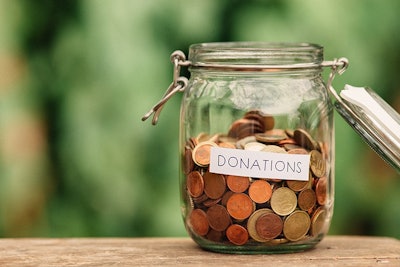
Cannabis companies eager to give back to their communities may find that charity organizations won’t take their money. This was indeed the case for Meg Sanders, CEO of Canna Provisions, an adult-use dispensary group in Massachusetts.
“There were a few different charities, locally and regionally, that we tried to donate to here in Massachusetts, and they wouldn’t take our money,” Sanders tells Cannabis Business Times. “The fear is that because a lot of them are federally funded, if they take our cannabis money, they might lose their federal funding. … I can’t say I haven’t run into a philosophical issue, as well, that maybe people just don’t believe in this product being available, but mostly it seems that the pushback is around federal funding.”
Although Massachusetts has financial institutions that work with medical and adult-use cannabis businesses, Sanders says that many charity organizations believe accepting donations from the industry is too risky until federal guidance on banking is issued.
“Until we have some type of federal legislation on the books that promotes safe banking—like the SAFE Banking Act, for example—it’s just one of those things where it’s a gray area and it’s too risky,” she says. “I think solving the banking issue goes a long way in creating opportunities for people to take our money.”
Until a solution is found, cannabis businesses looking to donate money to their favorite organizations continue to face pushback, particularly in Massachusetts, Sanders says, where charity is a large part of the state’s cannabis industry. The state requires cannabis business license applicants to outline a plan for positive impact in their community as part of their application, and this plan is reviewed as part of the licensing process.
“A lot of what’s happening in Massachusetts is very charity-based, equity-based, making sure that we’re hitting areas with disproportionate impacts through hiring [and] education,” she says. “That’s part of not just our corporate ethos, but also what the state of Massachusetts’ regulatory body, which is the Cannabis Control Commission, has laid out. Charity and giving has been a big part of our plan, and not just because of that, but because our experience in other states has shown that participating at that level in the community really helps move the needle in terms of acceptance of our products.”
Five organizations have accepted monetary donations from Canna Provisions, Sanders says, and oftentimes, the organizations have asked the company to describe its business and overall mission. Sometimes, she adds, the organizations have even consulted their boards for approval before accepting the donations.
“There are a lot that will take our money, but there are always a couple that won’t, so we have to do a lot of asking before we know exactly,” she says.
While some organizations refused monetary donations from Canna Provisions and other cannabis companies that Sanders has worked for over the years, she says the team has still been able to contribute manpower to various charitable projects, and she has taken advantage of these opportunities when possible.
“We not only write checks, but we spend a lot of time with volunteer hours,” she says. “I can say right now we have over 85 hours in our volunteer bank, as far as what our employees have done, and that’s anything from taking flowers to the assisted living facility on Mother’s Day to give to patients to several … sponsored cleanups of creeks or streets or that kind of thing. … We’ve also volunteered with the chamber of commerce to hang all the beautiful flower baskets for the summer season along the main street in our hometown, and we have several more in the works. It’s just so great for people to meet us and understand we’re great people and a great place to do business and encourage them to support our efforts here in Massachusetts."
























